[Big read] Rich Chinese kids going on overseas study tours could worsen China's socioeconomic divide
In the first summer vacation since Covid-19 lockdowns were lifted in China, study tour operators are back in full force throughout the country. Interestingly, two extremes have emerged in terms of spending on such tours depending on region and family income. Against a backdrop of uneven economic development and unequal distribution of educational resources across China, will this polarisation aggravate its social stratification problem?
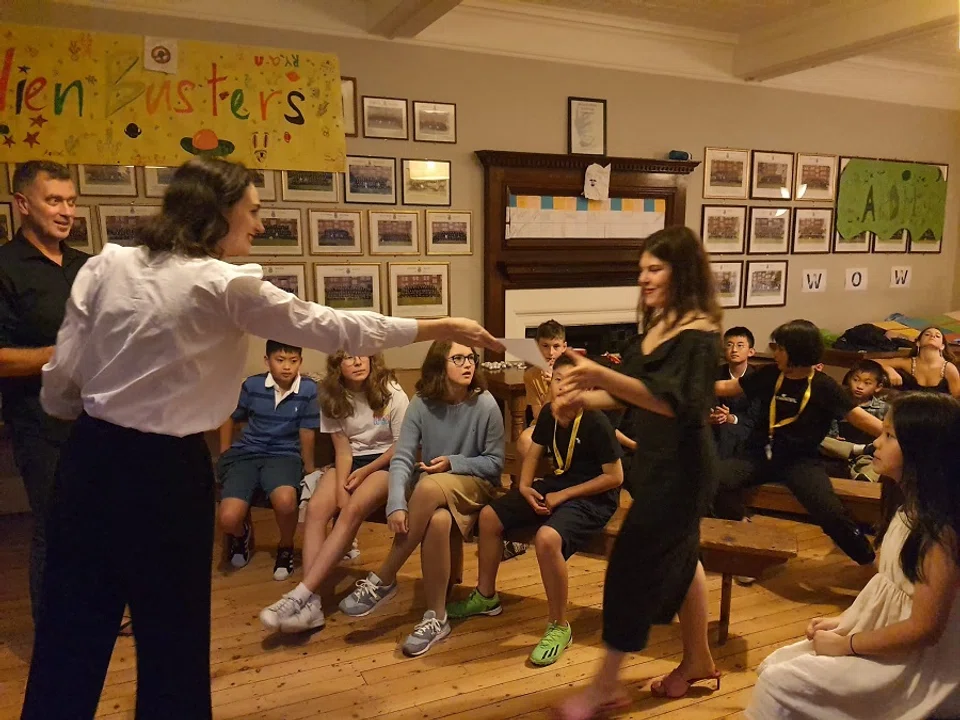
This summer, UK-based study tour operator Yi laoshi (艺老师) hosted over 50 Chinese students, most of whom paid upwards of 40,000 RMB (US$5,500) to participate in learning camps that Yi's company jointly organised with private UK schools.
Other students took part in learning camps that Yi's company organised in collaboration with top UK universities like Oxbridge; some younger participants had their guardians with them. The starting fee for a guardian and child pair was 100,000 RMB.
Yi, who began organising study tours for Chinese clients six years ago, told Lianhe Zaobao that there has been a significant increase in the number of high-net-worth individuals with far more spending power than ordinary groups.
Kids congregate by location and wealth
This year, in China's popular study tour market, an immersion in the UK is the most expensive, followed by trips to Asian countries like Singapore that cost around 15,000 RMB. Study tours within China are the cheapest and range in price from a few hundred to about 7,000 or 8,000 RMB.
The huge price difference separates Chinese families by location and wealth. Based on informal estimates made by Yi's company, most of her clients live in first-tier cities such as Beijing or Shanghai, or wealthy provinces like Zhejiang, which are also traditional education strongholds in China.
... the more economically developed regions in the country - except for western China - are the major consumers of study tours.

A report published in May this year by Chinese market research firm Huaon (华经产业研究院) showed that the more economically developed regions in the country - except for western China - are the major consumers of study tours. Eastern China with its numerous affluent provinces ranked top, accounting for 35% of total spending.
Si Zhaokai, deputy secretary-general of the Shanghai Association of Higher Education Digital Economy Development and Research Professional Committee (上海市高等教育学会数字经济发展与研究专业委员会), told Lianhe Zaobao that study tours inevitably appear at a certain level of economic development, and are related to economic performance.
In my interviews with several Chinese parents, the elites among them who live in first-tier or potential first-tier cities told me that more than half of the children they know participated in study tours this year. On the other hand, less than 30% of students from ordinary schools in non-first-tier cities went for study tours, with even fewer heading overseas for such activities.
Economically-developed Chinese cities and provinces have long outspent the rest of the country in education. Findings from surveys like the China Insight Education Index (中国教育小康指数) and Education in China Development Index (中国现代教育发展指数) also show that first-tier cities like Beijing and Shanghai and economically developed provinces like Zhejiang and Jiangsu are consistently ahead.
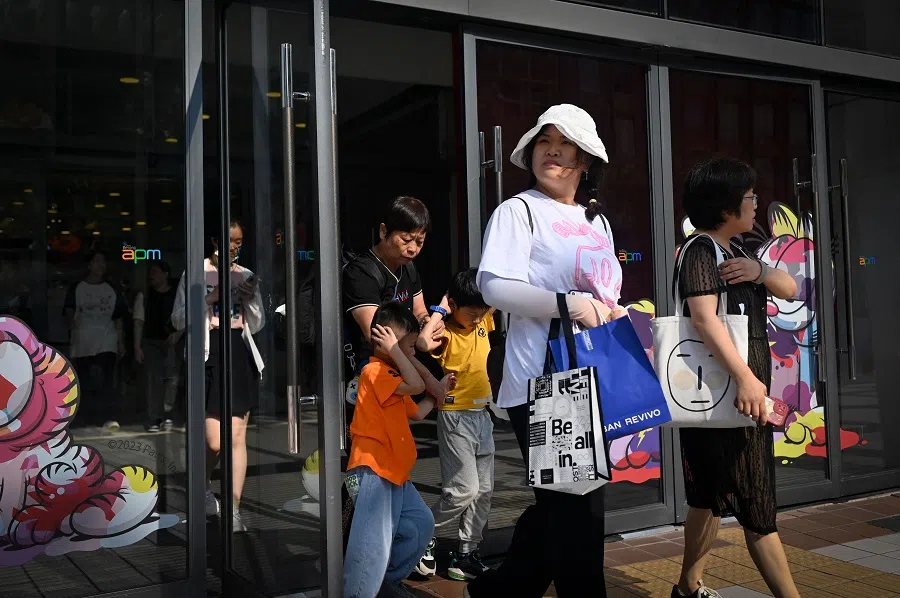
As for individual and household spending on education, figures published by the China Media Group in its 2020 Chinese Economy and Lifestyle Survey (《中国经济生活大调查》) indicate that the average yearly expenditure for a child in first-tier, second-tier, and third-tier cities was 44,000 RMB, 36,000 RMB and 29,400 RMB respectively.
A parent with a child in a renowned public school in Shanghai said that at least half of her child's classmates went on study tours this year, and that she paid around 50,000 RMB to send her child on a study tour to the US.
This parent who works in a foreign firm and declined to be named said education was their biggest household expense, but the question of money was not an issue. "I just ask my son whether he likes it, and sign him up if he does," she said.
Elite families like Wang's come into contact with foreign education systems earlier and are influenced by Western education ideals.
Study tours provide elites earlier access to Western education
In 2016, Chinese authorities incorporated study tours into the country's primary and secondary education. Through the efforts of schools and the education market, many families have been exposed to the idea in the last two to three years. In comparison, families that are more progressive and with more resources at their disposal started even earlier - at the time, these activities were branded as summer camps.
Stay-at-home mum Wang Guan (pseudonym) has a son and a daughter; her husband is a pilot. The couple first sent their children on study tours back in 2015 when their elder daughter went to primary school. Since then, their children have gone on study tours to different places every year, with the furthest being a 15-day tour to Finland in 2019 which cost them 50,000 RMB.
Wang's children currently attend an international school in Chengdu. This summer, she spent nearly 10,000 RMB per child to send them on a six-day rock-climbing challenge camp at the Yangshuo cliffs in Guangxi.

Elite families like Wang's come into contact with foreign education systems earlier and are influenced by Western education ideals. In recent years, they have also begun paying more attention to physical and outdoor training for their children. Since such activities require specialised venues and professional staff, they often cost more.
According to Wang, of all the local outdoor study tours that her children have joined, even the cheapest costs around 1,500 RMB daily, more than twice the rate of ordinary sightseeing tours.
To cater to such families, high-end operators have come up with study tours that emphasise outdoor and physical training.
"They spend so much money so their children can experience Oxford University, which will give them a goal in their studies." - UK-based tour operator Yi
According to Yi, many study tours to the UK include sports activities, such as an "Arsenal FC training camp". Besides meeting parental demands for an immersive English-speaking environment, such experiences also expose the children to world-class football teams and skills training.
Yi observed that parents from elite families did not just want to "improve English standards" because their children were already well-versed in English; instead they sought experiences and a chance to build dreams. "They spend so much money so their children can experience Oxford University, which will give them a goal in their studies."

The Shanghainese parent mentioned earlier also said overseas study tours were a good experience and she was open to them. If her son enjoyed the experience, he could venture out in the future; this could even "plant a seed in him".
Cheaper options amid economic slowdown
With downward pressure mounting on the Chinese economy, even though the study tour market enjoyed spectacular growth this summer, operators say that parents, especially those who are not as well-off, are more interested in value for money, and are "spending down" on study tours.
Many recent figures show that China is facing weaker economic growth, tighter consumer spending and a lack of spending motivation.
While the summer study tour market has gone against the trend, operators have also noticed that parents are more inclined towards getting value for money.
Zhou Meng (pseudonym), the founder of a study tour firm in Chongqing that has been operating for nine years, told Lianhe Zaobao that rising international air ticket prices and living costs caused the price of previously sought-after study tours to Singapore to increase by about 20%. "In the past, I would receive enquiries from parents even before launch. This year, even a few days before departure, there were not enough sign-ups for the tour to proceed, so I was forced to call off the tour."
This year, she decided to focus on budget-friendly local study tours as opposed to costlier ones overseas.
"Parents often think about spending more than 10,000 RMB on study tours initially, but when it's time to pay, their budgets often shrink to 6,000 or 7,000 RMB." - a study tour operator in Chengdu
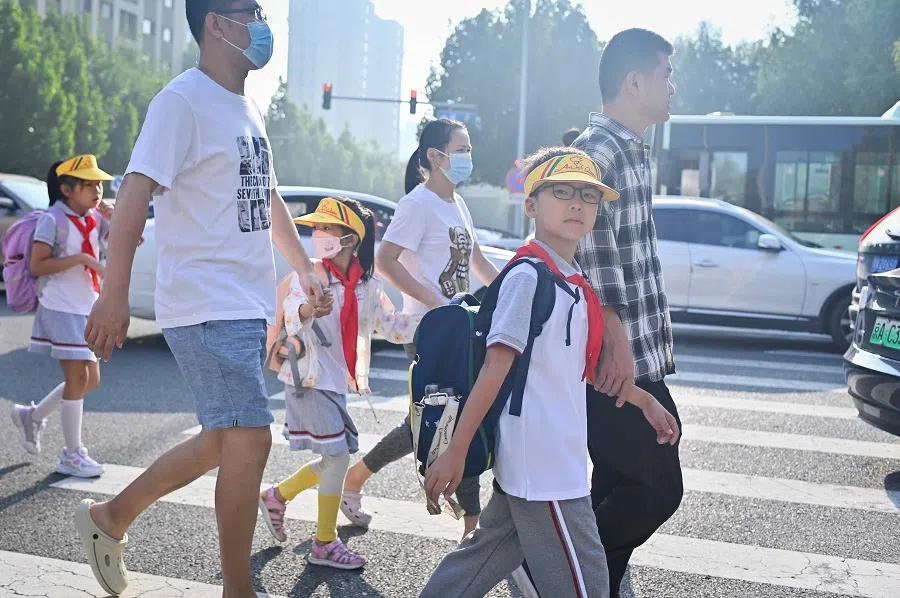
Advertising firm founder and Chongqing parent Deng Jie said frankly that this year's economic situation caused her to "downspend" on study tours this year for her child. "I had planned to send my child overseas, but settled on a local tour."
In the end, Deng registered her son who is finishing primary school this year on a 5,000 RMB, seven-day study tour to Beijing.
She told me that as they were in the graduating cohort, around half of her son's classmates enrolled in study tours during the summer vacation. "Initially, everyone in our chat group was talking about going to Singapore, but the cost made us favour Beijing in the end."
Song Ting (pseudonym), the boss of a study tour operator in Chengdu, told me that the economic slowdown has clearly affected spending power. "Parents often think about spending more than 10,000 RMB on study tours initially, but when it's time to pay, their budgets often shrink to 6,000 or 7,000 RMB."
Study tours vs tuition
Song feels that when the economy is not doing well, parents become clearer about mandatory or optional budgets in terms of spending on education.
She said, "When the economy is doing well, parents have enough to spend a little more for their children to take part in summer study tours on top of tuition classes. But now that budgets are tighter, they need to be more prudent. If they have spent all their money on tuition, they would not spend on study tours."
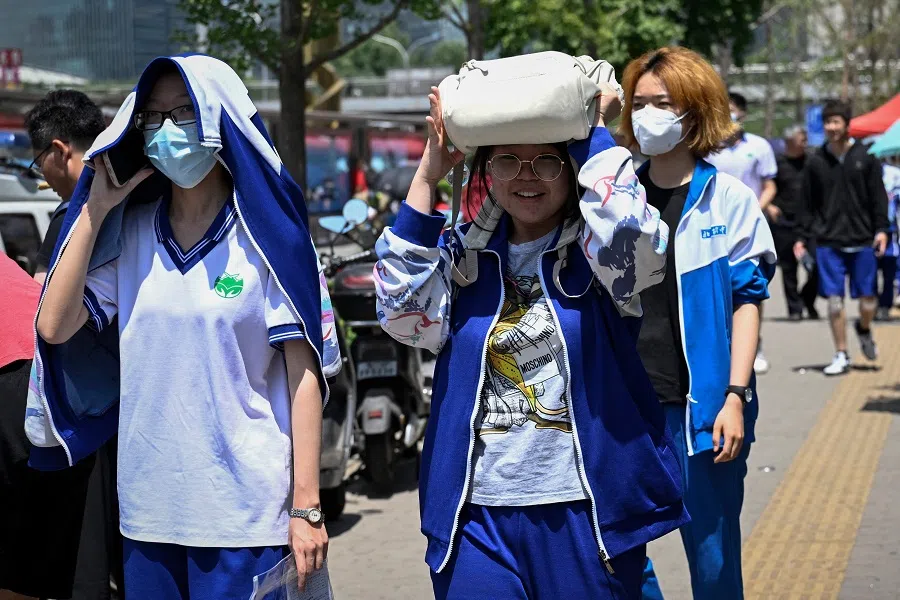
However, like the impact of property cooling measures on Chinese cities, while the overall weakness in the Chinese economy is affecting the spending of most households on education, the degree of impact differs for those in tier-one cities as opposed to those in lower-tiered ones.
Traditionally affluent regions have a strong economic foundation, so even with economic pressure, families have more leeway to spend on education, while regions with weaker economic foundations will feel the squeeze in educational spending.
The Shanghainese parent said those around her are more careful about their spending, but for her, spending on education is still a priority, with little impact.
... due to factors such as economic development, only elite families or those in first-tier cities can afford to do so, which would lead to greater division in world views among the younger generation as a result of differences in family background. - Assistant Professor Lu Xi, LKYSPP
Reflects information gap between China and the world
While study tours are just a small part of Chinese education, academics feel the differential access to study tours due to family finances and views on education may cause the next generation of Chinese to have more splintered world views.
Assistant Professor Lu Xi from the Lee Kuan Yew School of Public Policy at the National University of Singapore said when the economy is not doing well, differences in spending power are magnified.
He pointed out that during such times, people manage spending with planned cuts. This means that households that are less well-off have little spare cash to spend on non-essentials, and as the most elastic item, spending on parenting education is often the first to be reduced.
Lu feels that the study tour stratification also reflects the information gap between China and the rest of the world.
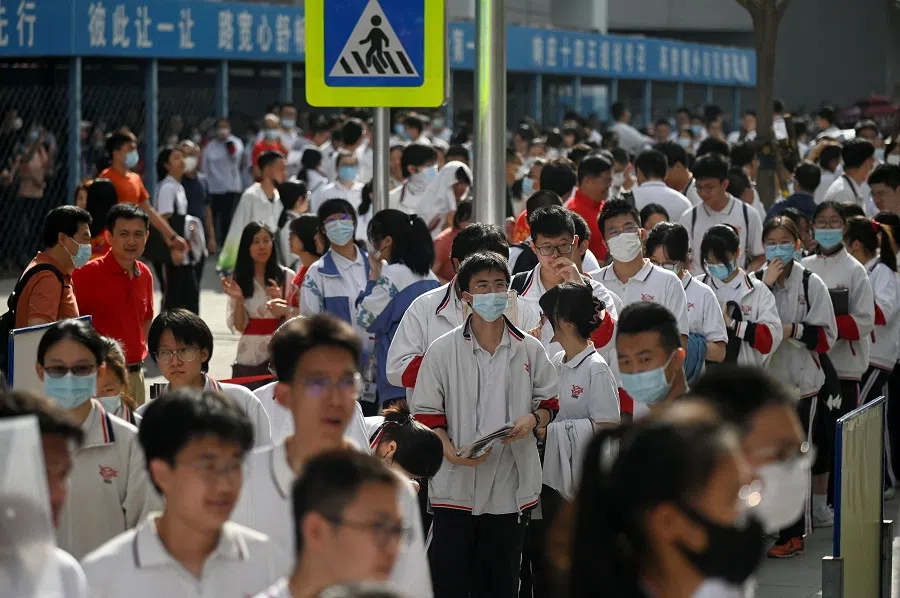
He said as the gap between China and the rest of the world deepens, informed and able parents will send their offspring on study trips or let them study overseas, giving the next generation more opportunities to experience and understand the outside world. However, due to factors such as economic development, only elite families or those in first-tier cities can afford to do so, which would lead to greater division in world views among the younger generation as a result of differences in family background.
Lu elaborated that besides financial ability, the information gap in China has also led to differences in parents' personal choices, which would harden and consolidate the personal values of parents and children.
Chinese society splitting between conservatism and liberalism?
To study tour company founder Zhou Meng, other than the economy, the lacklustre performance in the overseas study tour market also has to do with the fact that most people could not travel overseas during the three years of the pandemic.
She said that after the pandemic, many people developed the habit of anticipating the future with apprehension, while impeded access to information creates more doubt, so after growing used to not travelling, the first reaction to going overseas is to feel unaccustomed and cautious about it.
Lu Xi also highlighted that over the longer term and at a deeper level, the choice between going overseas or not can cause social and ideological divisions, which may even cause Chinese society to split between the two poles of conservatism and liberalism, and ultimately worsen the rip in the social fabric, affecting social stability and harmony.
This article was first published in Lianhe Zaobao as "研学热背后的阶层分化".
Related: Singapore is becoming the preferred study destination for affluent Asian families | China's young families sending kids to international schools in Thailand | Rising Chinese student enrolment in Thailand: Cash cows at a cost | Chinese investment into Thai private universities: The need to keep standards up





